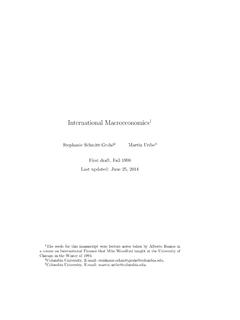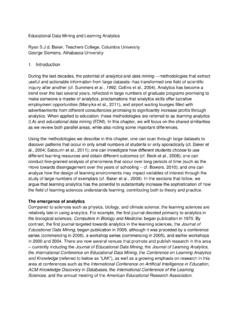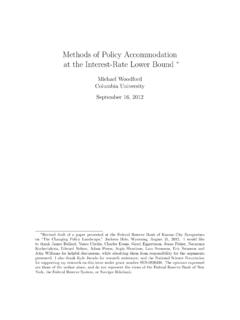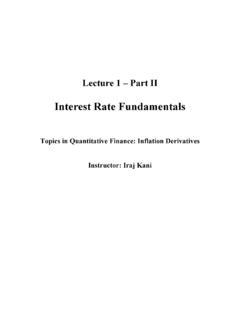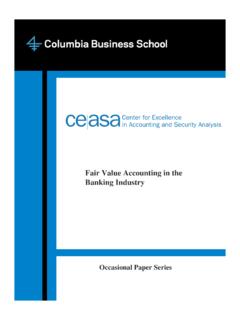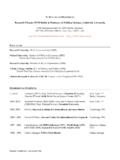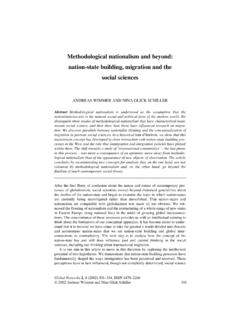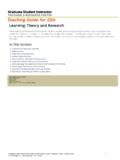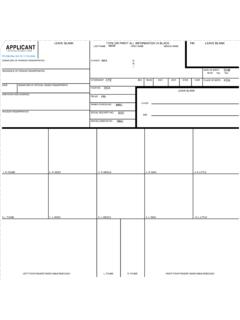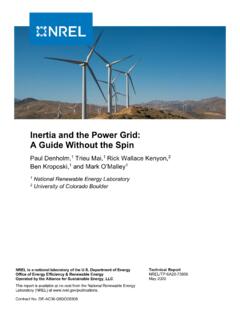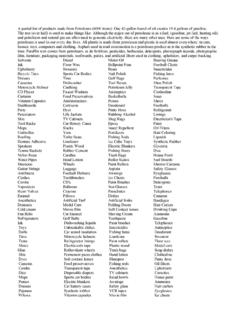Transcription of Ph.D. Thesis Research: Where do I Start?
1 Thesis Research: Where do I Start? Notes by Don Davis Columbia University If you are the next Paul Samuelson and will wholly transform the field of economics, pay no heed. If you are the next Ken Arrow and will invent a new branch of economics, these notes are not for you. The aim here is more humble: to provide strategies for identifying exciting Thesis research topics for the rest of us. There is no algorithm that yields an exciting Thesis . Too much depends on your energy and imagination. But there are more and less efficient ways of trying to identify exciting topics. And I will try to convey at least my own aesthetics about what interesting research is about. These may vary a bit by sub-field and certainly across economists, so certainly seek out others perspectives.
2 So, ignore these suggestions if you choose but have a good reason to do so. How Do I Find The Right Topic ? First, there is no Right Topic. What is hot today may be ice cold by the time that you go on the job market. You don t want the nineteenth best paper of the year on a hot topic. Much more important is to find something that is important and genuinely interests you. There are great papers to be written in almost all fields. You need to settle on an area Where you are sufficiently interested that you don t mind making some investments, since these investments are preparing you not only for Thesis work but also for your next round of papers as an assistant professor. Let me underscore that you should focus on an important problem. The lore of economics includes what is sometimes termed Summers Law (yes, after Larry).
3 This holds that it takes just as much time to write an unimportant paper as an important one. Hence .. you might as well work on important topics. (Note: This is not an incitement to work on broad, vague topics!). This is not as trivially obvious as it might first appear. Lets start with a first fact: Most of economics is boring. No, I don t mean this in the way that the public at large means it; on the contrary, I think that economics done well can be beautiful and fascinating. What I mean is that most writing on economics is boring because: (1) It does not address interesting questions; (2) It has nothing new to add that is itself important; or (3) Even if the researcher does in fact have something new and important to say, the researcher does such a poor job of articulating this that the reader has little chance of figuring this out.
4 How do I know if I have an interesting topic? First, be aware that interesting inevitably has a subjective, aesthetic component. So we cannot expect to find necessary and sufficient conditions for an interesting topic. Nonetheless, there are useful indicators. When I undertake a research project, I find it a useful artifice to think of one of the more skeptical members of the profession repeatedly pressing me with the question: Why should I care? How am I going to convince this skeptic that she should pay attention to my research? One part of the answer is that I am asking and answering a question that has some substantive real-world counterpart. Moreover, I would also like to be able to argue that the issue is an important one. Hence, real-world examples can be influential and magnitudes matter.
5 In trying to convince yourself (and others), you should be as concrete as possible in explaining both the type of problem to which this applies and what the magnitude of the problem is. Certainly an indicator (not a proof!) that a problem is interesting is that good minds have spent time thinking about it. I note this because most economists will grant the prior that if several leaders in a certain field have struggled with a problem, it is likely to be an important question ( if these people spent most of their time struggling with unimportant problems, they would be unlikely to be leaders in their field!). But you should rely on this only as an indicator. You should be able to tell an independent story about why the area is important. Moreover, working on areas well combed over by the leaders of the field also has a number of pitfalls, discussed more fully below.
6 Let s assume now that you have made a convincing case that the problem that you are addressing is one that we do care about it is one with a real world counterpart of some significant magnitude. How do you convince your reader that you have something new and important to say about the problem? Let me stop to emphasize both new and important. New. In economics, as elsewhere, you are going to be paid by your marginal not your average product. Solow s model of economic growth won him a chair at MIT and the Nobel Prize, but you will be less successful if you write it down again. You may convince us that it addresses an important problem, but there may be nothing in what you have done that is new. How do you know if what you are doing is new? One answer is to go back and read the entire history of the literature in your particular area.
7 This is a tempting option as you can surely convince yourself and your advisers that you are working hard. Unfortunately it is also a very inefficient path, more likely to mire you in controversies that are old and forgotten for good reason than to show the path forward. The first step should surely be to talk to someone actually working in the area or at least reasonably familiar with it to find out if someone has already answered the question you are pondering (your adviser is hopefully a good starting point). Second, one can look at recent surveys of the literature or recent working papers directly on the topic as coming close to providing a sufficient statistic for what has been done before in the area. This can be extremely useful, but you should at least be aware that even serious academic work often contains spin that may tend to understate the accomplishments of older literatures relative to recent (especially those that the author has contributed to).
8 Third, naturally Econlit and the Social Science Citation Index can be extremely helpful in identifying related work and should be consulted carefully. If you are not familiar with both of these, you should stop reading this very instant and return once you have figured out how they are used! Let s assume now that you have convinced us that you are working on an important problem with real-world counterparts and that matter in substantive terms, and moreover that your approach to the problem is new. How do you convince us that the work that you will show us is important? We all know of important papers that have launched vast literatures. But much of the resulting literature ends up in third-tier journals if it is published at all. Occasionally a paper, even in a huge literature, rises to the top nonetheless.
9 Why the different outcomes? The key, I think, is to convince readers that the novel element in your paper is in fact important. How do you do this? The threshold is that after reading your paper, researchers familiar with the literature in your area should see the world differently. How to do this varies to a certain extent based on whether you are writing in theory or empirics. If it s a theory paper, one element would be if there is a problem that people have understood is important but have not known how to solve. If you can make an advance of this type, that will be very impressive. A second possibility is that there is an outcome that, under reasonable assumptions, people had not thought possible. If you can show that this outcome is indeed possible, then this can be very impressive as well.
10 Note, though, the clause under reasonable assumptions ! One important element of the problem may be to establish that in fact the type of assumptions that you make are more reasonable than those that the prior literature makes (or at least no less reasonable). If you are working on an empirical topic, again it is not sufficient to do something that is new. You have to convince us it is important. Taking someone else s regression model and adding a new variable that turns out to be statistically significant may be okay for an econometrics exercise, but will it land your paper in a top journal? To start, we have to be sure that you have already met our prior questions that the over all question you address is important and that what you are doing is new. For an empirical paper, we must then ask whether there is good theoretical motivation for the inclusion of the new variable.

